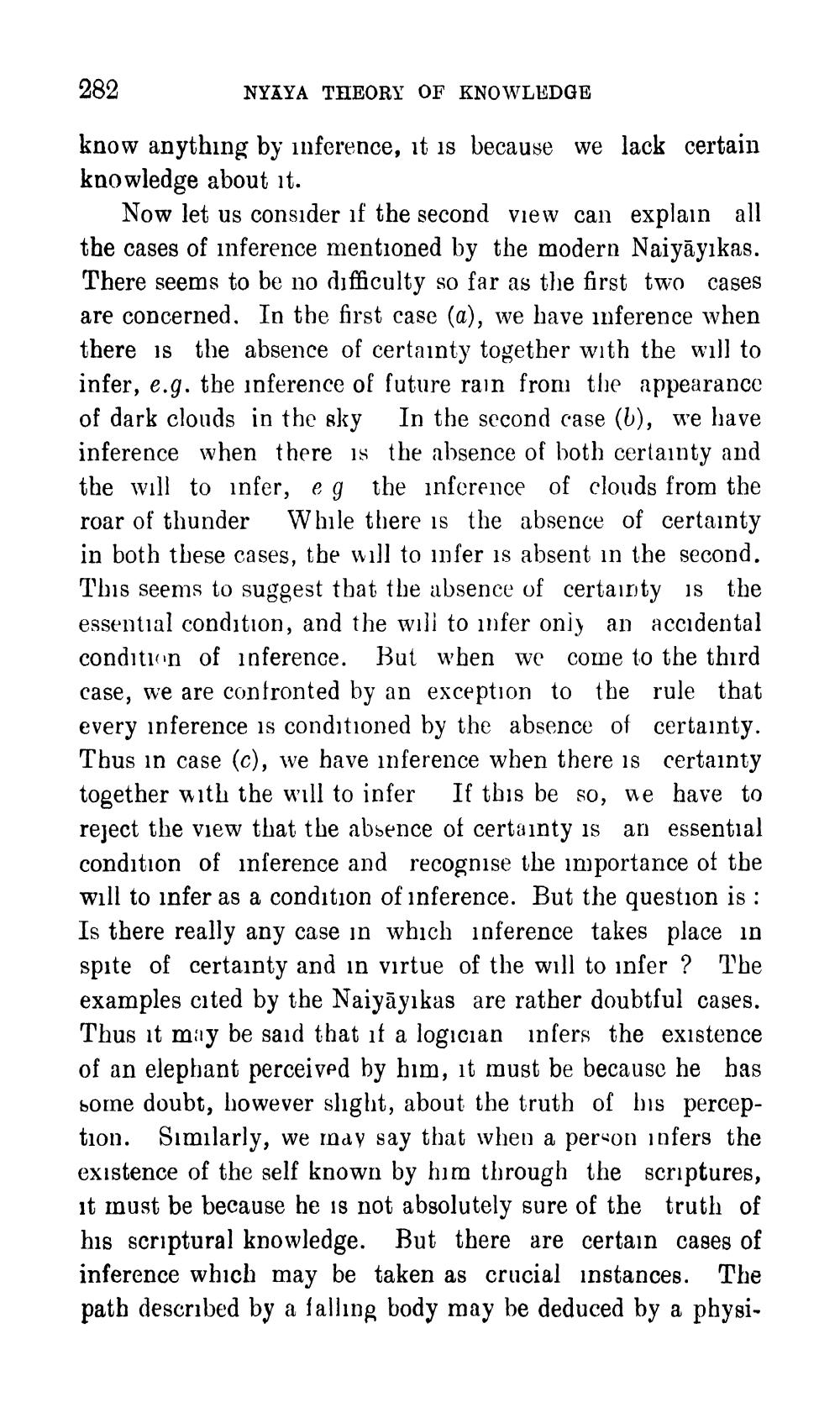________________
282
NYAYA THEORY OF KNOWLEDGE
know anything by inference, it is because we lack certain knowledge about it.
Now let us consider if the second view can explain all the cases of inference mentioned by the modern Naiyāyıkas. There seems to be no difficulty so far as the first two cases are concerned. In the first case (a), we have inference when there is the absence of certainty together with the will to infer, e.g. the inference of future rain from the appearance of dark clouds in the sky In the second case (), we have inference when there is the absence of both certainty and the will to infer, eg the inference of clouds from the roar of thunder While there is the absence of certainty in both these cases, the will to infer is absent in the second. This seems to suggest that the absence of certainty is the essential condition, and the will to infer only an accidental condition of inference. But when we come to the third case, we are confronted by an exception to the rule that every inference is conditioned by the absence of certainty. Thus in case (c), we have inference when there is certainty together with the will to infer If this be so, we have to reject the view that the absence of certainty is an essential condition of inference and recognise the importance of the will to infer as a condition of inference. But the question is : Is there really any case in which inference takes place in spite of certainty and in virtue of the will to infer? The examples cited by the Naiyāyikas are rather doubtful cases. Thus it may be said that if a logician infers the existence of an elephant perceived by him, it must be because he has some doubt, however slight, about the truth of bis perception. Similarly, we may say that when a person infers the existence of the self known by him through the scriptures, It must be because he is not absolutely sure of the truth of his scriptural knowledge. But there are certain cases of inference which may be taken as crucial instances. The path described by a falling body may be deduced by a physi




